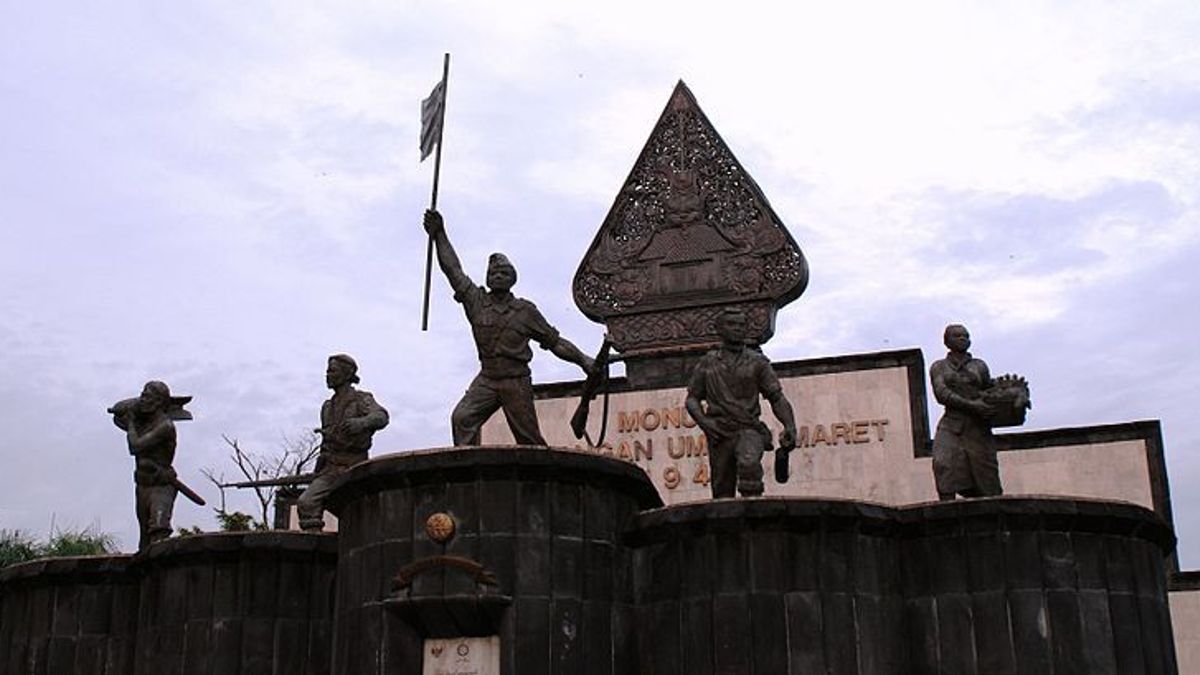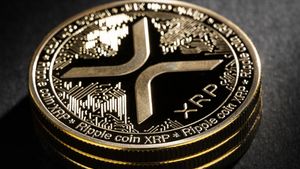JAKARTA - The Dutch Military Aggression II brought deep sorrow to the Indonesian people. Victims of the Bumiputra bejibun. While the Netherlands is superior on paper. They have a full fleet and weaponry. However, Indonesia's struggle did not stop. The courage of freedom fighters is still rising. The General Offensive of March 1, 1949 is evidence. The attack silenced the Dutch that the Indonesian military had been crushed. Because of that, sympathy from the international community also flows to Indonesia.
The Dutch action to reclaim Indonesia continued after the proclamation of independence. Dutch Military Aggression I, then Military Aggression II became a rehearsal. This action brought deep sorrow to all Indonesian people. Many lost their lives, even property. Many Indonesian leaders were detained. As a strategy, Indonesia established the Indonesian People's Emergency Government (PDRI) in Sumatra. To show that Indonesia still exists.
On the other hand, the Dutch Military Aggression actually opened their own ulcers. This action actually opened the eyes of the international community regarding the Dutch atrocities. The UN Security Council was not happy with the Dutch action. The UN feels harassed. Since then the countries that provided assistance to the Dutch Military Aggression slowly withdrew. United States, especially.
The UN takes a stand. The Dutch were urged to conclude a ceasefire on December 31, 1948 in Java. Meanwhile, a ceasefire in Sumatra was called for on January 5, 1949. In reality, the ceasefire pressure was not effective. The Netherlands often cheat. Several times they violated the truce. Propaganda was circulated that the Indonesian armed forces had been tamed.
Sri Sultan Hamengkubuwono IX was furious in the midst of increasingly uncertain conditions in Indonesia. He then took a stance to implement a plan so that Indonesia would be more discussed internationally. The March 1 General Offensive was launched.

"He was looking for a way to revive his fighting spirit and coincidentally he heard foreign radio news that at the end of February 1949 the Indonesian-Dutch issue would be discussed in the UN forum. The news gave an inspiration to Sri Sultan who immediately contacted General Sudirman at his hiding place to ask his approval, carry out the tactics he has designed. He was also given permission to have direct contact with the guerrilla commander.”
“Finally, on February 14, 1949, at the Kraton complex, he met with Lieutenant Colonel (Lt. Col.) Suharto, Commander of the Wehrkreise (defense area) III. At that time, Lieutenant Colonel Suharto was disguised as a courtier of the Kraton. Sri Sultan asked his ability to prepare a general attack within two weeks. After Suharto declared his ability, through the couriers a tactic was arranged to carry out attacks," said Benny G.
General Attack ImpactThe attack was carried out. People know it as the March 1, 1948 General Offensive in Yogyakarta. In a short time the Dutch were repulsed. Dutch soldiers were forced to leave their posts. This opportunity then fueled the enthusiasm of the Indonesian army to seize a number of weapons owned by the Dutch.
The fruit of the General Offensive, Indonesia finally succeeded in occupying Yogyakarta for 6 hours. After that, the entire military and freedom fighters then withdrew and returned to guerrilla warfare. Even in the General Offensive, it was not only the military that only played a role. Civilians also helped. Mainly in spreading the news about repelling the Dutch from Yogyakarta.
“The collectivity is recorded from the roles of civil and military which are often intertwined, however often they are not in line. For example, the general attack was tactically and operationally executed by the army, then this news was deliberately broadcast to the world as an affirmation of the existence of the Republic of Indonesia by struggle radios including PC-2 radio in Playen, Gunung Kidul and Rimba Raya radio in Ronga-Ronga, Bireun. , Aceh."

“Who captured and confirmed this message overseas? One of them is the Indonesian diplomat assigned to the UN in New York, LN Palar, a civilian diplomat. It is impossible for field commanders to go to New York to convey this message alone and then pressure the Dutch envoy to reopen negotiations, they also depend on civilian elements," said historian Ody Dwicahyo when contacted by VOI, March 8.
The General Offensive Struggle made Indonesia flood of support. The international community then criticized the Netherlands. The Windmill Country was asked to end its desire to dominate Indonesia a second time. There was also criticism from the United States, which initially supported the Dutch. Uncle Sam's country immediately imposed political and financial sanctions on the Dutch.
The impact of the General Offensive was also felt by the independence fighters in the country. The spirit of resistance is getting stronger. The narrative of guerrilla warfare is scrolled everywhere without knowing the time. From morning, afternoon, evening, to night. This incident brought Indonesia one step closer to complete independence.
“Inside the country, the effect of this attack is truly extraordinary. The fighters in other areas seemed to find a new passion and were increasingly inspired to hold a resistance against the Dutch. Some of the leaders of the puppet states, then changed their attitude, turning to support the Republic."
“The civilian leaders who were exiled in Bangka are increasingly determined to refuse to cooperate with the Dutch. Nasution noted that after the March 1 General Offensive, the guerrilla struggle increased, even during the day," concluded A. Yogaswara in his book Biography of Suharto (2012).
The English, Chinese, Japanese, Arabic, and French versions are automatically generated by the AI. So there may still be inaccuracies in translating, please always see Indonesian as our main language. (system supported by DigitalSiber.id)













